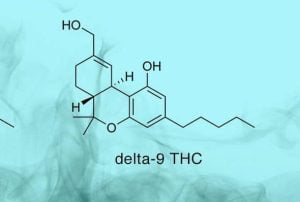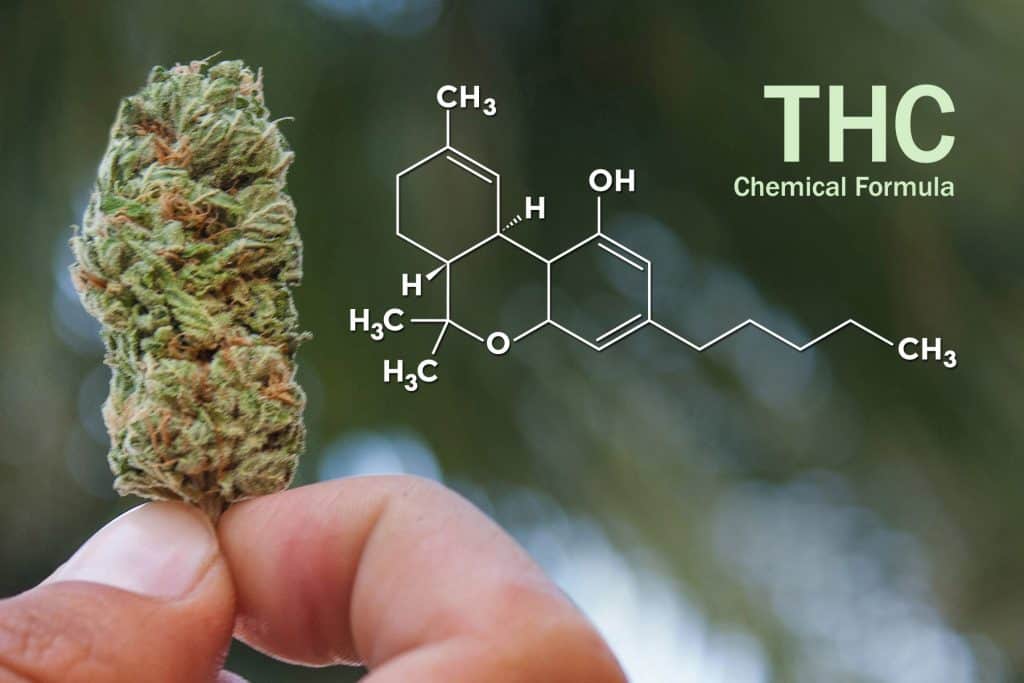Blog
Decoding THC: Unraveling the Effects of Delta-9, Delta-8, and More
Delta-9-tetrahydrocannabinol (THC) is the primary psychoactive compound in cannabis that has captivated the attention of researchers and cannabis enthusiasts alike. However, there’s more to THC than meets the eye. Recent advances in cannabis research have led to the discovery of different THC variants, each with unique effects and properties. In this magazine-style blog, we embark on a journey to decode THC and explore the intriguing world of Delta-9, Delta-8, and beyond. By unraveling the distinct effects and potential benefits of each THC variant, we can gain a deeper understanding of how cannabis interacts with our body and mind.
Delta-9-THC: The Classic Psychedelic Experience

Delta-9-tetrahydrocannabinol, commonly known as Delta-9-THC or simply THC, is the primary psychoactive compound found in cannabis. It is responsible for the characteristic high experienced by marijuana users. When THC is consumed, it interacts with the body’s endocannabinoid system, specifically binding to cannabinoid receptors in the brain and central nervous system. This interaction triggers a series of chemical reactions that lead to the release of neurotransmitters, altering perception, mood, and sensory experiences. Users often report feelings of euphoria, relaxation, and an increased sense of well-being. Additionally, Delta-9-THC is known to stimulate appetite, leading to the phenomenon known as the “munchies.” These psychoactive effects make Delta-9-THC a sought-after compound for recreational use, as it can provide an enjoyable and relaxing experience for many individuals.
Beyond its recreational appeal, Delta-9-THC also possesses potential therapeutic benefits. Medical research has shown that THC can be effective in managing chronic pain, as it interacts with the body’s pain pathways. Additionally, THC has been utilized to stimulate appetite and alleviate nausea in medical conditions such as cancer and HIV/AIDS. Furthermore, some studies suggest that THC may have neuroprotective properties, potentially offering benefits for conditions like Alzheimer’s disease and multiple sclerosis.
However, it is essential to approach THC use responsibly, especially considering its psychoactive effects. Different individuals may respond differently to THC, and high doses can lead to adverse effects such as anxiety, paranoia, and impaired cognitive function. Additionally, long-term heavy use of THC may have implications for mental health, particularly in those with a predisposition to certain psychiatric conditions.
Overall, Delta-9-THC is a fascinating compound that plays a significant role in the effects of cannabis. Its psychoactive properties contribute to the recreational appeal of marijuana, while its potential therapeutic benefits have sparked interest in medical research. As cannabis becomes more widely accepted and regulated, understanding the unique effects of Delta-9-THC is crucial for both recreational and medical users to make informed choices and ensure safe and responsible consumption.
Delta-8-THC: A Milder High with Therapeutic Potential

Delta-8-tetrahydrocannabinol (Delta-8-THC) is a fascinating THC variant that has been gaining significant attention for its unique properties and potential therapeutic benefits. Similar to Delta-9-THC, Delta-8-THC shares a similar chemical structure, but it exhibits distinct effects on the body and mind. One of the most notable characteristics of Delta-8-THC is its ability to produce a milder and more subtle high compared to Delta-9-THC. Users often describe the experience as clear-headed and less anxiety-inducing, making it an appealing option for those seeking a gentler cannabis experience. This aspect of Delta-8-THC can be particularly beneficial for individuals who may be sensitive to the potent effects of Delta-9-THC or those looking for a more balanced and relaxed state of mind.
Beyond its recreational potential, Delta-8-THC has shown promise in the realm of therapeutic applications. Research suggests that this THC variant may possess anti-nausea and anti-anxiety properties, making it a potential candidate for medical use. These properties make Delta-8-THC particularly interesting for individuals who require relief from nausea and anxiety-related symptoms without the intense psychoactive effects often associated with Delta-9-THC. Additionally, Delta-8-THC may hold potential as a viable option for managing stress and promoting a sense of calm and relaxation, making it an intriguing subject for further medical research.
As the cannabis industry continues to explore the diverse effects of different THC variants, Delta-8-THC stands out as a compound with a promising balance of mild psychoactivity and potential therapeutic benefits. However, it is essential to approach its use responsibly, seeking guidance from healthcare professionals when considering its incorporation into wellness or medical regimens. As the scientific community delves deeper into the properties of Delta-8-THC, its potential to enhance both recreational and medicinal cannabis experiences opens new possibilities for cannabis enthusiasts and patients seeking a more tailored and well-rounded cannabis journey.
THCA: The Non-Psychoactive Precursor

THCA, or tetrahydrocannabinolic acid, is a fascinating cannabinoid present in raw cannabis plants that serves as the precursor to Delta-9-THC, the psychoactive compound responsible for the intoxicating effects of marijuana. Unlike Delta-9-THC, THCA does not produce any psychoactive effects in its raw state, making it a non-intoxicating compound. However, THCA is far from being just an inactive precursor; it offers its potential health benefits. Emerging research has shown that THCA possesses anti-inflammatory properties, which could make it a valuable tool in the management of inflammatory conditions. Additionally, studies suggest that THCA may have neuroprotective effects, indicating its potential in the treatment of neurological disorders. As interest in the therapeutic potential of cannabis grows, researchers are increasingly exploring the unique properties of THCA and its potential role in medical research and wellness applications. While consuming raw cannabis does not lead to intoxication, incorporating THCA-rich strains or products into health and wellness routines may offer additional benefits beyond those of the psychoactive Delta-9-THC. As the science behind cannabis continues to unfold, THCA stands as a captivating compound, holding promise for both the cannabis industry and the medical community in their quest to harness the full potential of this versatile plant.
THCV: The Appetite Suppressant

Tetrahydrocannabivarin (THCV) is a captivating and lesser-known THC variant that has been gaining attention in the world of cannabis research. What sets THCV apart from its more famous counterpart, Delta-9-THC, is its potential to act as an appetite suppressant, presenting an exciting prospect for weight management and obesity-related conditions. Unlike the “munchies” commonly associated with cannabis use, THCV appears to counteract this effect, making it an intriguing candidate for those seeking to regulate their appetite and control their food intake. This unique property of THCV has sparked interest in its potential applications for weight loss and obesity treatments, presenting a promising avenue for further investigation and medical research.
Beyond its appetite-suppressing qualities, THCV has also demonstrated potential as an anticonvulsant. This makes it a subject of interest for the treatment of epilepsy and other seizure disorders. The anticonvulsant properties of THCV open up new possibilities for using cannabis derivatives in therapeutic interventions, potentially offering relief to individuals who suffer from seizures and related conditions.
While THCV is present in relatively low concentrations in most cannabis strains, its distinct effects make it a compelling compound worthy of exploration. As researchers delve deeper into the world of cannabinoids, THCV’s unique properties may pave the way for novel therapies and medicinal applications. The understanding of THCV’s potential as an appetite suppressant and anticonvulsant adds to the complexity of cannabis’ pharmacological profile and underscores the importance of further investigation into the diverse range of compounds found within the plant. As the world of cannabis research continues to evolve, THCV’s captivating attributes provide hope for innovative and effective treatments for weight management and neurological disorders, offering a glimpse into the untapped potential of cannabis as a source of therapeutic solutions for various health conditions.
Unraveling Variants and Effects
Decoding THC goes beyond the traditional understanding of Delta-9-THC’s psychoactive effects. The discovery of different THC variants, such as Delta-8-THC, THCA, and THCV, adds complexity to the cannabis experience and opens new avenues for research and exploration. Each THC variant offers distinct effects and potential therapeutic benefits, expanding the possibilities of cannabis use for both recreational and medical purposes. By delving into the intriguing world of THC and its variants, we can enhance our understanding of cannabis and its interactions with the human body, paving the way for more informed and responsible cannabis consumption.


